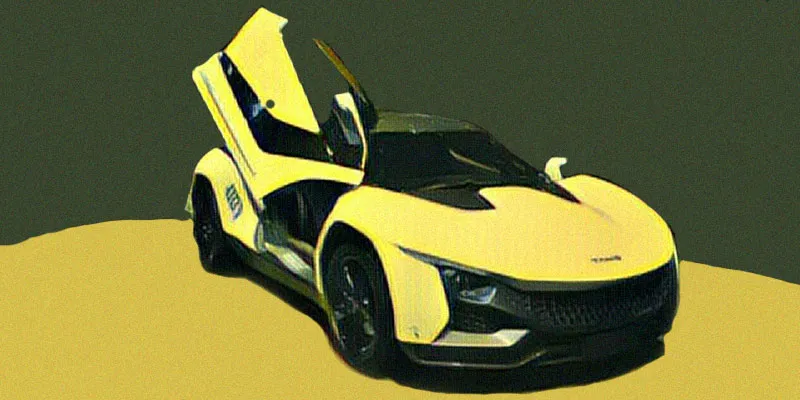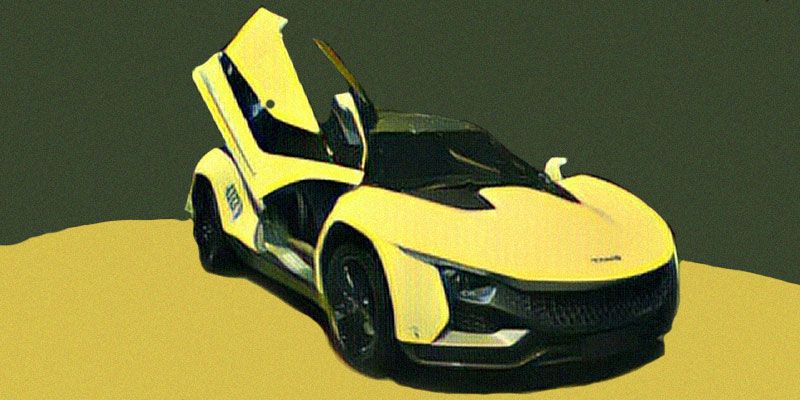India finally gets a connected vehicle strategy, Tata Motors partners with Microsoft
Although 61 million vehicles will be connected to the cloud by 2020 globally, India is still way off from connected cars hitting the road. But Tata Motors is the first Indian company to focus on cloud-based computing applications for a car with its partnership with Microsoft.
When Microsoft and Tata Motors forged a partnership to use the Azure Cloud to build artificial intelligence and cognitive platforms for vehicles recently, the world did not realise that this was the first such partnership for an Indian automobile company.
It is a significant move for Tata Motors, which is $41.6 billion in revenues, because, until now, it has been shying away from serving smartphone hungry millennial consumers. The best it could do so far was to build an app called Juke, which allows the consumer to track the car's service dues, and play music stored on the phone. It did not allow users to sync their phone to the car using 4G networks and Wi-Fi.
If one remembers Chetan Maini, Founder of Reva, he was the first to introduce an app-based interface with the car and the consumer in 2010. His company, now acquired by Mahindra&Mahindra, also provides remote updates of software of cloud-based computing applications - such as the battery management system - in the vehicle.

But the partnership with Microsoft will bring an end to this older generation technology. The Azure Cloud will use the power of cloud computing to deliver or beam messages directly onto the car's telematics unit, which will authenticate a few apps on the phone.
The only thing that one should now await it a defined strategy for the next generation of cloud-powered vehicles that will hit the road by 2023-24.
To illustrate this with a hypothetical example, think about a journey from Bengaluru to Mysuru; the telematics unit will suggest places of interest and shopping. This will be done by geo-spatial mapping and co-creative business models, with incumbents such as insurance companies, retailers, telecom providers, and automobile companies. So, if one is driving back from work the telematics units will sync deals from a Tata-Tesco-owned Star Bazaar to the car, through the app synced in the car. If Tata Motors pulls this off this will be the first company to do so in India.
The underlying computing architecture will be on Azure, and the cloud provides Software as a Service to cars. Even companies like Freshdesk and Helpshift can operate as CRM tools in the car. And the possibilities do not end there. There can be deals made with entertainment apps like Amazon Prime and music app Saavn too.
Even utility apps such as calendars can be integrated. Most importantly, security features such as lane and proximity detection will be done by software, and will not need additional devices to be added to the car's telematics unit. Predictive maintenance will be dynamic and the diagnostics of the car will be live rather than assuming that a car would need service every 10,000 kilometres.
"The possibilities are enormous. But our experience with startups here has been to build the UI for the app. There will be many more engagements going forward," says Timothy Leverton, Head of product engineering, Tata Motors.
This technology was showcased at the recently concluded Geneva Motor Show, in a new sports vehicle concept unveiled by Tata Motors. But how far is this cloud-based system from becoming a reality? The Indian consumer has to wait for at least five years.
The long wait
"These features are being built in India for global markets such as the US and UK from India. It would be interesting to see what kind of cloud applications will work in India," says Vijay Ratnaparkhe, MD of Robert Bosch Engineering India Limited.
The computing platform has to be powerful enough to detect Indian road behaviour, because the traffic markers are never a guideline for drivers. Machine learning works under rules, and since Indian road systems often are at the mercy of drivers and pedestrians bending rules, it would be difficult for cloud-based computing to create safety features. But what it can do is provide vehicle diagnostics and predict driving behaviour. It could bring down vehicle insurance and push insurance companies to agree to accept cloud-based data.
Globally, only the US has created successful cloud-based business models for cars. Tesla is the classic example of the success. Its autonomous control is powered by software that tracks markers on the road to drive the vehicle without the driver assisting the wheel. The entire car can be operated, other than driving, with the smartphone, and there are security features that do not allow certain apps to engage with the car. All software updates happen remotely.
Globally, Microsoft has bagged deals with Volvo and the Renault-Nissan Alliance (RNA) to build cloud computing applications for cars.
General Motors has opened its cloud-based system, OnStar, and data to developers, and is already testing autonomous vehicles in Michigan.
Last year, General Motors tied up with IBM Watson to build OnStar Go, which will power driving applications similar to Azure. GM hopes this service will reach two million 4G LTE connected vehicles by the end of 2017.
According to the latest forecast by Gartner Inc., the production of new automobiles equipped with data connectivity, either through a built-in communications module, or by a tether to a mobile device, is estimated to have reached 12.4 million units, and will increase to 61 million in 2020.
"The connected vehicle is the foundation for fundamental opportunities and disruptions in the automotive industry and many other vertical industries," says James Hines, Research Director, Gartner, adding that connected vehicles will continue to generate new product and service innovations, create new companies, enable new value propositions and business models, and introduce the new era of smart mobility, in which the focus of the automotive industry shifts from individual car ownership to a more service-centric view of personal mobility.
India sells three million cars per year. It is only a matter of time before cloud-based cars will take an Indian form.
Is India ready for this? Not yet. But Tata Motors is definitely showing the way forward.







